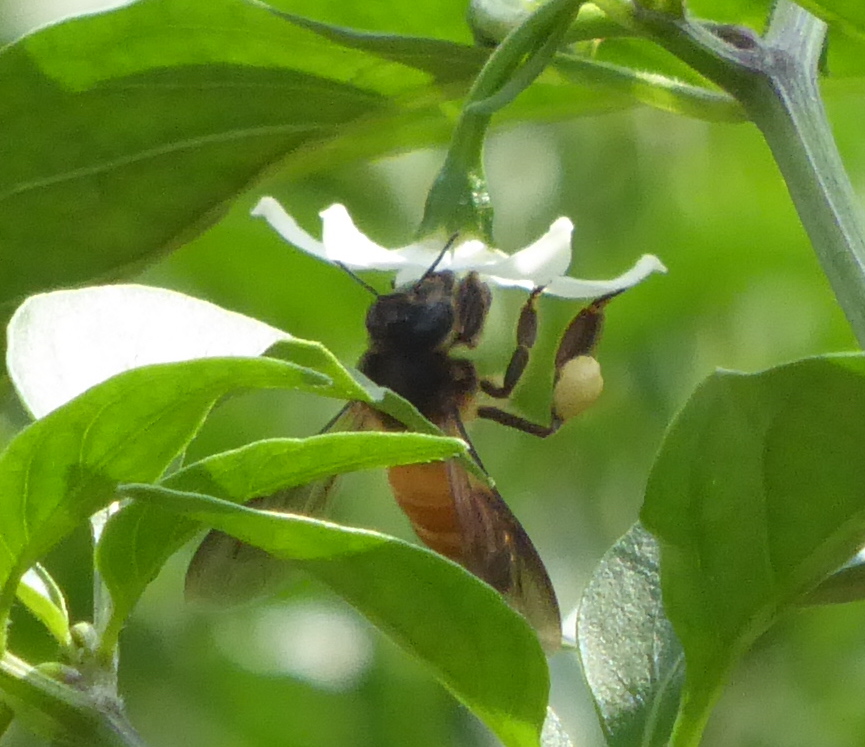High dependency of chilli fruit set on wild pollinators in southern India
DOI:
https://doi.org/10.26786/1920-7603(2021)629Abstract
Ongoing pollinator declines threaten the production of many entomophilous crops. Recent reports that yields of animal-pollinated crops in India are increasing less than pollinator-independent ones suggest the occurrence of pollen limitation. We experimentally evaluated if production of the common food crop chilli benefits from insect pollination and if crop production is constrained by lack of pollinators under field conditions. Experiments were conducted in eleven chilli fields distributed across a semi-arid agricultural landscape in Andhra Pradesh, India. The experimental treatments included open controls, open pollen-supplemented flowers, and bagged flowers for pollinator exclusion. The fruit set from the two open treatments (control and pollen supplementation) was about three times higher than that from the exclusion treatment, suggesting strong dependence on insect pollination. Control supplementation treatments did not differ, which suggests that there normally is sufficient pollination for chilli production in the area. Bees contributed 98% of flower visits. Flower visitor abundance correlated with higher fruit set, but only significantly so in the pollen supplemented treatment. While previous studies that are mostly conducted in greenhouse settings suggest that chilli reproduction does not depend much on animal pollination, our field study confirms that presence of animal pollinators increases fruit set. Future research should establish if this also applies to fruit quality and total yield. Our study highlights the importance of field-realistic experiments and warrants research on pollinator dependencies of other crops. The results have implications for crop production in an area where pollinator levels may be sufficiently high for crop pollination today but possibly not in the future due to environmental change.

Downloads
Published
How to Cite
Issue
Section
License
Copyright (c) 2021 Johanna Yourstone, Josefin Gunnarsson, Henrik G Smith, Hema Somanathan

This work is licensed under a Creative Commons Attribution 4.0 International License.











